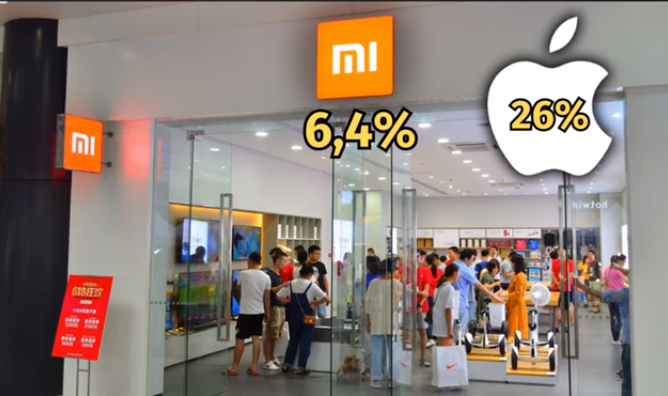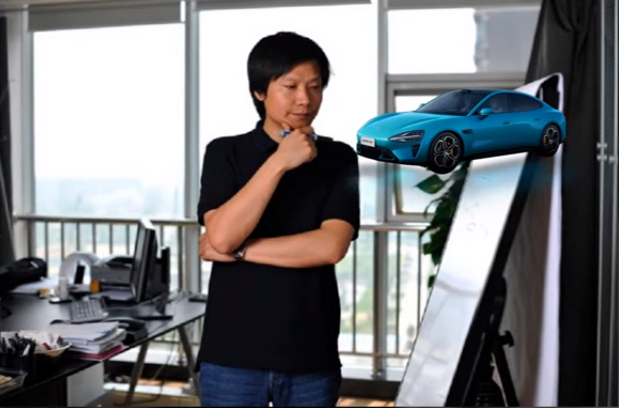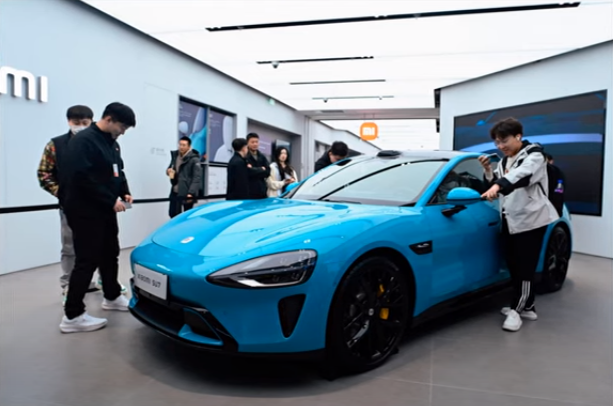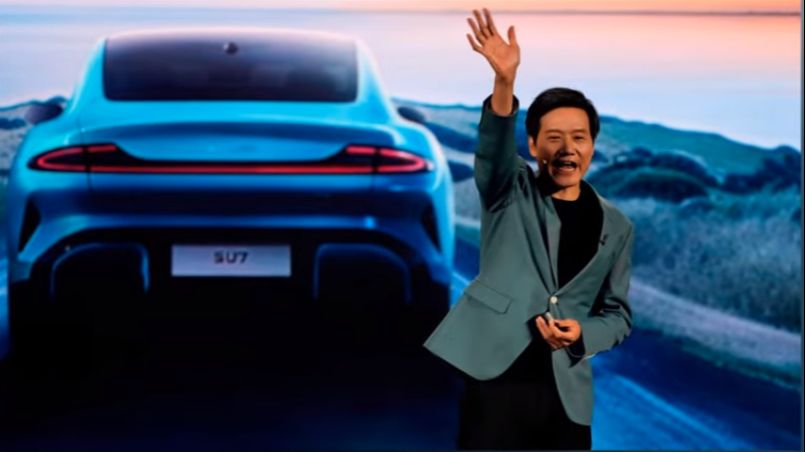After more than a decade of operating as a copycat of Apple with products like iPhone, iPad, and Macbook. Xiaomi's Lei Jun has finally surpassed the big competitor from Silicon Valley in the electric vehicle field, while Apple quietly abandoned its long-standing Titan electric car project and spent billions on research and development, the Chinese technology conglomerate Xiaomi has successfully launched its first commercial electric car, with a new electric car rolling off the highly automated production line at Xiaomi's factory in Beijing every few minutes.
CEO Lei Jun's sophisticated marketing plan and ability to turn ideas into real products have earned him comparisons to Steve Jobs, leading to the nickname Lei Jobs for Xiaomi's famous CEO in China. In early April, Lei Jun took the stage in a blue blazer to announce Xiaomi's success in creating its first electric car just 3 years after announcing its ambition to enter the electric car industry. Lei Jun spoke at the launch event of the SU7 electric car in front of hundreds of guests and investors seated below the stage, saying "It's really difficult to make a car, so difficult that even a tech giant like Apple had to abandon its electric car project."
Shifting focus when unable to compete with Apple

At present, Xiaomi's relentless efforts over nearly a decade seem to be paying off. On April 2, Xiaomi's stock price surged 12%, reflecting strong market demand for the smart electric car SU7 after a successful launch event. The company received over 100,000 orders within a few days of opening sales. Since its founding with just seven colleagues in 2010, CEO Lei Jun has led the company from a small startup to a leading global smartphone manufacturer, ranking third in global market share.
The Xiaomi brand now owns a diverse range of products, with the logo appearing in various fields from suitcases, headphones to smart home appliances like washing machines and vacuum cleaners. Lei Jun began his business career as a programmer at a university in Wuhan, China. In 1989, along with an older former student, he released his first product, encryption software sold on floppy disks. Lei's next company was started in a hotel room, selling computers and software along with printing and photocopying services.
As business operations expanded in various directions, management and profitability became increasingly challenging, Lei Jun shared. Eventually, Lei Jun became the head of Kingsoft, China's largest office software manufacturer, similar to Microsoft Office. He still holds a 23% stake in Kingsoft, a company listed in Hong Kong with a market capitalization of up to HK$31 billion, about $4 billion. Just 3 years after CEO Steve Jobs unveiled the first iPhone in 2007, Lei Jun assembled a development team to produce a smartphone with features similar to the iPhone.
The smartphones produced by Xiaomi are equipped with powerful configurations and modern technology but are very affordable compared to similar products. With its aggressive marketing campaign, the Xiaomi brand quickly gained popularity among young consumers. However, the looming shadow of Apple continues to haunt Xiaomi, as Lei Jun has repeatedly tried to launch high-end phones directly competing with the iPhone. However, most of the products have not attracted many buyers willing to pay a price close to or equal to the iPhone.
This has forced Xiaomi to sell flagship products with very low profit margins. Xiaomi's profit margin was only 6.4% last year, much lower than Apple's impressive 26%. Therefore, investors have valued Xiaomi at less than $50 billion, equivalent to about 1/5 of Apple's massive market capitalization.
Ambition to become a major player in the electric vehicle industry

In 2021, Lei Jun made his biggest bet on the electric vehicle production plan, with Xiaomi's lineup of electric vehicles set to launch in 2024 with a huge investment of up to 10 billion yuan, equivalent to about $1.5 billion. He called it his final massive business effort in his career. Xiaomi's new electric car is part of the Xiaomi universe product ecosystem that allows drivers to control all smart devices such as turning on lights at home, electric rice cookers from the central control panel in the car. Over 3 years of electric vehicle development, every day I felt nervous and fearful because this challenge is truly a huge psychological pressure on me.
Lei Jun shared his emotions last week at the product launch event according to an internal source, CEO Lei Jun spent about 70 to 80% of his time in the past year on Xiaomi's electric car project. Every day, he arrived at the office at 7:00 a.m. and worked continuously until 10 to 11 p.m. Lei Jun aims to make Xiaomi one of the top three electric vehicle manufacturers in China, this source added. This will also help Xiaomi become one of the largest electric vehicle manufacturers in the world. Xiaomi's factory on the outskirts of Beijing can produce 150,000 vehicles per year, and expansion plans will double this capacity.

Xiaomi's executives say the global influence of the brand with a wide network of distribution and smartphone stores worldwide will boost sales in foreign markets. Xiaomi's rapid transition from the goal of producing its first electric car to the ambition of mass production is also receiving strong support from China's promising electric vehicle supply chain. Domestic electric vehicle manufacturers, along with Tesla, have nurtured a huge workforce and a range of new component suppliers from major manufacturers like Catl to aluminum parts manufacturers.
A supplier of automation parts for Xiaomi's electric vehicle manufacturing plant revealed that dozens of former Tesla engineers are working inside Xiaomi's plant, with Tesla acting as a training academy for electric vehicle experts. The source believes that not only Xiaomi but even Apple has recruited talents from Tesla in the early stages of their car project. A Xiaomi spokesperson said they received up to 30,000 job applications from experienced candidates from large car manufacturers immediately after the conglomerate announced its entry into the electric vehicle manufacturing sector.
Currently, Xiaomi has three dedicated employees for this new electric vehicle business segment. Franker, a technology analyst at HSBC Chance High Securities, estimates that Xiaomi's electric vehicle segment will continue to incur losses in the next 2 years as the new car manufacturer is in a scale-up phase. However, in the long run, the conglomerate will be able to generate a small profit from each car sold and revenue from services provided to customers. Frank, the analyst, believes that Chairman Lei Jun is seeking a new source of growth in a more attractive market, Xiaomi's greatest advantage is the strong brand presence both in China and globally.
Christoph Weber, CEO of the technical software company Order Form and a partner of Xiaomi, said Lei Jun is ready to repeat past success by launching a high-quality electric vehicle line. They think and act like a technology company rather than a traditional car manufacturer. Weber believes whether Xiaomi can succeed with this ambition remains to be seen, but let's not forget that many Chinese electric car companies have been bankrupted due to the fierce market competition.
